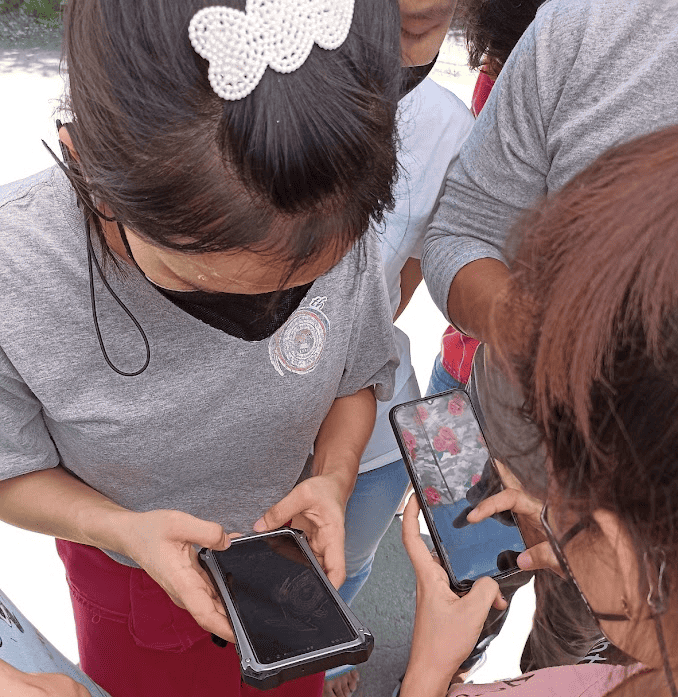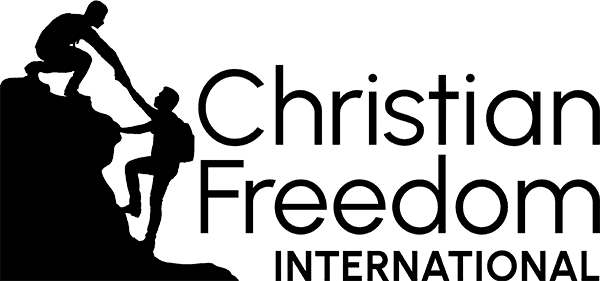Internet: A Gift for the Persecuted & Tool for Persecution

When I watched the video, I knew something was not right.
A young man looked up in fear. A loud voice spoke in Arabic, and the man repeated in barely a whisper. The video was posted on an Islamist leader’s social media. An imam was exposing this new Christian and claiming he returned to Islam by saying a Muslim creed.
But was it true? And could we help this Christian who was half a world away?
A Gift for the Persecuted and a Tool for Persecution
The internet is both a blessing and a curse.
With it, we have the greatest opportunity in history for the Church to work together with persecuted Christians. We can communicate at lightning speed and connect people at critical moments.
But this same tool can spread lies, inflame mobs, and cause terrible harm to vulnerable Christians, like this new believer.
Escaping from an Internet Video
When “Abdul” became a Christian, he was held hostage in a mosque and beaten. Worn down and distressed, he followed an imam’s demands to recite the Muslim creed. The imam captured it on video, posted it on YouTube, and declared that he had convinced “Abdul” to revert to Islam.
“Abdul” was able to escape. We were able to get him to one of our safe houses.
But he cannot fully escape danger so long as that video is on the internet. Any Muslim who recognizes him may demand that he declare his allegiance to Islam. If he doesn’t, he could be punished, even killed.
We quickly relocated him to an area where the people belong to a different religion and speak a different language, and arranged a job that gave a cover story for why he was there. Since then, he has moved many times. He cannot return home. But thank God and thanks to your support, he can live, mostly safe, with Christians caring for him.
Finding Christ and Christians
In another country, “Jae” longed to know about Jesus. But he did not dare to ask anyone. Raising any questions in his closed nation would put his life in danger.
So, he waited until the day he got access to an electronic device that could connect to the internet. He searched online and read all that he could about Christianity. Then he randomly sent messages to find someone to disciple him.
God has ways of bringing the right people together. A pastor responded and “Jae” gave his heart to Jesus. But he knew, to openly follow Jesus he would have to leave his country.
So, he melted into groups of people who were escaping. By God’s providence, he connected with a Christian Freedom International representative. As he moved from place to place, another person linked to us helped, then another.
Last year, on Christmas Day, he arrived in a place where he can follow Jesus more openly.
Although he is in a safe country, he still must be careful. Just as he was able to travel thousands of miles, so have extremists from his country. If they discover “Jae” has become a Christian, his family members who are left behind will be punished.
A Double-Edged Sword
Many students arrive at Victory Bible Academy from jungle villages in Burma. They come to Christian Freedom International’s school to be trained in Christian ministry and learn job skills.
These teens escaped from the ruling junta’s violent attacks targeting ethnic-minority Christians. They have been isolated, demonized, and impoverished. Learning from our staff that God loves them, and to have hope for a better future, is life-changing.
But despite being safe in our school, they are still vulnerable to traffickers and scammers that creep into their lives through websites and social media.
“The internet is a double-edged sword,” said Joe Scott, director of Victory Bible Academy.
“It holds the opportunity for education and sharing information. When the military attacks Christians, the internet is how we find out. When families are scattered, the internet is how we reconnect them.”
“But we’ve seen lures for fake jobs, and requests for money. Students have fallen prey to traffickers and internet scams,” he said. “And our students have helped people to get away from traffickers and scammers or stopped them before bad things happened.”
“Educating our students about the internet and getting them to share that information with others is a critical way to help persecuted Christians,” Joe said.
A few years ago, two students saw an internet ad promising a better life and riches. Despite the warnings they heard at Victory Bible Academy, they answered the ad. A man picked them up, their ID and phones were snatched, and they were held captive and forced to work in a factory.
They trusted what they read on the internet and were desperate to earn money for their families. It was only when they were trapped that they realized it could happen to them.
Somehow, they got a phone and called Joe. With the help of a network of Christians, Joe executed a daring escape, and they were freed. Now the two students work for one of the missionary groups that helped to rescue them.
“Thankfully, God brought good out of it. We use their story in our classes on internet safety,” Joe said. One lesson warns about sending money to people they meet on the internet, even if the people sound like they are in trouble and really need it. One example is personal.
A kind Christian had given money to a man who said he was a pastor and was raising money that was supposed to be helping people in Burma. But none of it was true.
The man took pictures in villages that he claimed to be helping. A staff member at Victory Bible Academy contacted the villages. They found out that the man would show up, take photos with a truck full of supplies, then leave and go to the next village.
“He bought a nice truck with the money that people gave. The villagers got nothing,” said Joe.
The Blessings of the Internet
“At the same time, the internet is what allows our students to sell their handmade items to friends and family all over the world,” Joe said.
At Victory Bible Academy, students learn to make t-shirts and colorful woven bags, scarves, and tunics. Their products are available for sale online at www.ChristianFreedom.org.
With their new skills and our online store, these persecuted youth earn money to care for their families and do kind deeds, like buy food for their impoverished neighbors.
When it comes to the internet, what wicked people use for evil, God uses for good.
Will you pray for:
- Persecuted Christians to be alert to threats and protected from evil spread on the internet.
- Christians like “Abdul” and “Jae” to connect with godly people like those in Christian Freedom International’s network.
Thank you for your support! By working together, we can seize opportunities to reach persecuted Christians with the crucial help they need.
God bless you,
Wendy Wright
P.S. “Abdul” was able to escape his persecutors, “Jae” can openly follow Jesus, and refugee students are equipped to overcome persecution.
Your support will connect persecuted Christians to the help they need as they face greater threats – and opportunities – from the internet.

Internet Safety Tips for Persecuted Christians
At Christian Freedom International’s school for persecuted Christians, one of the first classes that students take is Internet Safety.
Our school is on the Thailand/Burma border, a major area for human trafficking. The teens escaped from Burma and are training to be Christian leaders. While they are especially vulnerable as persecuted Christians, the tips they learn are useful for anyone.
Students learn that the internet is a powerful tool for good and evil.
- It is a vital way for persecuted Christians to connect with the body of Christ.
- It is effective for searching the Bible and to check if what is being taught is Scriptural.
- It is critical for when someone needs help, like finding first-aid tips when ministering in jungle villages.
Students are taught:
Is everything true on the internet?
How does information get on the internet? Who can post on social media?
Nothing you put on the internet is truly protected or confidential.
Everything is permanent. Everything you say, do, share or send to someone can be found by the right and the wrong people.
What are bots?
What are scams?
Ways to check for truth:
- If it sounds too good to be true, it probably is.
- Talk to others you know and trust who are local and independent. Check references.
- Double, triple, and quadruple check. Even this sometimes isn’t enough.
If someone you know is scammed, don’t blame and shame them. They already feel embarrassed and angry at themselves for falling victim. Encourage them as they sort through the aftermath.
